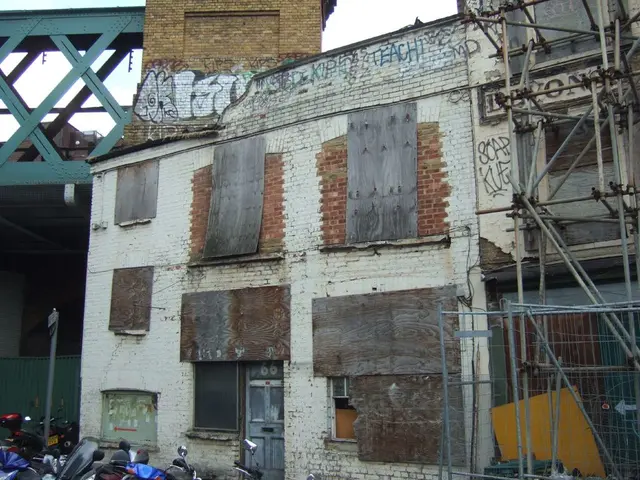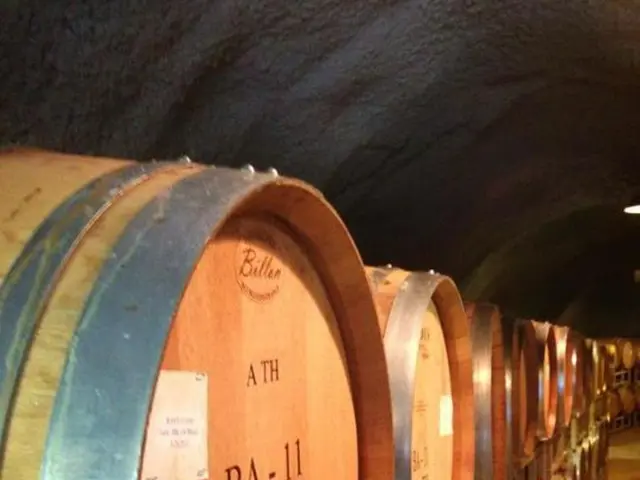Kelantan in Malaysia mulls over rare earth resources as a potential route to alleviate its debt burden. Could exploitation of these valuable minerals offer a way out?
Hear This: Malaysian electric vehicles are primed to make a major splash in the global market, with significant initiatives underway – most notably in the state of Malacca. Anwar Ibrahim's recent announcements have sparked excitement about Kelantan's rare earth resources potentially playing a pivotal role in the electric vehicle boom, but where exactly does Australia fit into this picture?
Here's the Scoop: Malacca is swiftly becoming the electric vehicle (EV) production hub of Malaysia, thanks to substantial investments and government support. Star players in this race include Fieldman EV Sdn Bhd, boasting a 1-billion-ringgit EV assembly plant project poised to create 5,000 jobs, and EP Manufacturing Berhad, already producing over a thousand vehicles and hiring a thousand more[1][3]. The Malaysian government is helping fuel this growth through incentives like tax breaks via organizations like MIDA and MGTC[3].
Local EV giant Proton Holdings Bhd is also joining the party, gearing up to release its second battery electric vehicle model in late 2025[5].
Now, where does Kelantan and its whopping 125-billion-ringgit rare earths reserves come in? Well, these precious minerals are crucial for EV production, given their role in electric motors and batteries. The rise of Malaysia's EV industry could pave the way for local rare earth extraction and processing, with Kelantan's reserves potentially entering the supply chain. This could generate considerable economic benefits for both Kelantan and Malaysia, solidifying the country's presence in the global EV supply chain[1].
But there's no concrete, straight-up collaboration between Malaysia and Australia when it comes to the rare earths aspect of the electric vehicle industry as of now. The development of Malaysia's EV sector might prompt the exploration and utilization of local rare earth resources – but that depends on future decisions about policy and investment.
So while things are looking super promising for Malaysia's and Malacca's role in the EV game, the Australian angle is still somewhat up in the air. As more details unfold, we'll be sure to keep you posted, mate.
[1] The Star Online. (2021, June 30). European cooperation policy. https://www.thestar.com.my/news/nation/2021/06/30/a-new-ero-for-an-old-partner[2] Perak Daily. (2021, July 8). Support electric vehicles, says former transport minister Kong. https://email.perakdaily.com/article-read.php?articleid=2638238&cat=politics[3] New Straits Times. (2021, September 23). Investment in Malaysia's EV industry continues to grow. https://www.nst.com.my/business/2021/09/762623/investment-malaysias-ev-industry-continues-grow[4] The Borneo Post Online. (2021, November 15). New stage in EV production. https://www.theborneopost.com/2021/11/15/new-stage-in-ev-production/[5] Bernama. (2022, February 2). Proton Holdings to launch second battery electric vehicle model in late 2025. https://www.nst.com.my/business/2022/02/770866/proton-holdings-launch-second-battery-electric-vehicle-model-late-2025
The rise of Malaysia's electric vehicle industry could potentially involve the extraction and processing of rare earth materials, with Kelantan's reserves as a possible source. The finance sector plays a significant role in supporting the growth of the Malaysian EV industry through investments and incentives like tax breaks. However, as of now, there seems to be no direct collaboration between Malaysia and Australia in the rare earths aspect of the electric vehicle industry.







